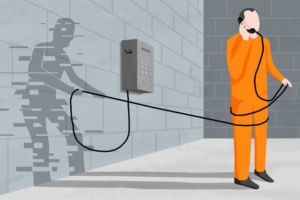The Need To Pass a law to Require Prosecutors To Disclose Information from Incentivized Informants
Last year I represented an individual who was charged with 5 counts of drug dealing primarily based on evidence derived from a paid informant working with the Tacoma Police Department. The evidence against my client was so connected to said informant that we were not permitted to see any of the evidence against us by the prosecutors under threat of “ending all negotiations” because by revealing the audio or video evidence, the “asset to law enforcement” – we were told – would be lost.
My client bravely defied the State and after six months of delays we were finally given information concerning the informant and the investigation of my client’s case and what we learned was horrifying.
First, the informant had died of a drug overdose just 4 days after my client was arraigned. This meant that much of the evidence against my client was not admissible per chain of custody, Confrontation Clause, hearsay and other constitutional and evidentiary issues.
Second, the informant had been charged with Second Degree Child Rape 6 years prior and in her psychosexual evaluation had claimed not to use drugs. The fact that she was working for TPD in that capacity went to her credibility (as did the subsequent drug overdose).
Third, despite being convicted of a serious felony involving children (though it was not ultimately plead as a sex crime but rather Second Degree Assault) the informant in question got herself a job at L&I working as a Spanish interpreter. She eventually plead guilty to defrauding L&I out of more than $34,000 by filing claims for interpreter services for people who did not in fact exist. Less than a year after pleading guilty to this, she became a paid informant for the Tacoma Police Department. Since she had already exhibited a history of lying for cash from the government, these were not minor details.
Fourth and most concerning, there was evidence to suggest that the informant may have simultaneously been working as a Spanish interpreter for private defense attorneys whilst concurrently working as an informant for TPD, suggesting the possibility that law enforcement was using our own assets against us in violation of our clients’ rights to attorney-client confidentiality. (although admittedly the evidence was limited and establishing a clear timeline for when she stopped working as an interpreter was not easy).
Ultimately, however, none of the aforementioned resulted in the case being dismissed for my client because – the Court ruled – there was no clear duty to disclose any of this to defense counsel and no evidence of any harm to the client because the client had yet to plead guilty or be convicted by a jury.
False testimony from incentivized witnesses is a leading cause of wrongful conviction in capital cases across the nation. Out of the 349 DNA based exonerations in the US, 17% involved an incentivized witness. Washington has 10 documented exoneration cases that involved the use of incentivized testimony. This will continue unless laws to protect the innocent are put in place. The system depends on honest prosecution but even honest prosecutors won’t do something unless they’re required by law to do it. That’s why we need to create an obligation to disclose information about paid informants to hold the State and the system accountable.
Senate Bill 5038 is an attempt to infuse some accountability into the process of using paid informants by requiring prosecutors to disclose certain information about informants prior to trial to defense counsel.
At present, the bill has sponsorship from State Senators: Padden, Pedersen, Kuderer, Darneille, Frockt and Angel, but they and other Senators and members of the State House need to hear support for the legislation from the voters.
You can learn who your legislators are and subsequently contact them regarding your support for this important legislation here, but above all, voters who want to ensure honest due process need to contact Speaker of the House Frank Chopp, which can be done here.
In all honesty, this law will not do enough, but it’s a start. I am therefore asking the general public to please help the Law Office of Chris Van Vechten acquire the statutory tools necessary to better protect the innocent and ensure fairness for the rest.




